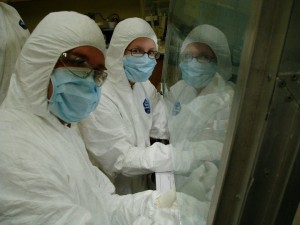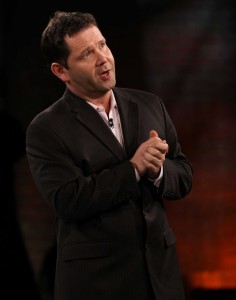Today we talk with Ryan Lehto, one of the founders of DNA Memorial. Ryan Lehto graduated from Lakehead University with a Bachelor’s in Biology and a Master’s in Molecular Biology with a specialization in DNA. As an accredited DNA scientist, his background is in forensics and criminal casework. Lehto has also retrieved DNA from several archeological digs, one of which included the extraction of DNA from a 7,500-year-old skull in Turkey. Today, one of his biggest achievements is pioneering innovative methods for DNA extraction and repair. Based in Canada, DNA Memorial seeks to help people preserve their loved one’s information and memory by extracting and storing their DNA.
Katie: First of all, how did you come up with this idea?
Ryan: The company is CG Labs where DNA Memorial is based. I used to work for the university and we came up with the technology for investigating ancient DNA and how to repair and store it properly.
Katie: What is the process for storing the DNA?
Ryan: We found out a way to store it at room temperature. Basically, we attach it to silica so it comes out looking like a white powder. With a dry white powder you can pretty much store it anywhere and then to get the DNA off, you simply heat it in water and it’s ready for the lab. So this way you can store anybody’s DNA.
Katie: What’s its use for family members and why would you want to store a loved one’s DNA?
Ryan: Well, first of all you’re saving everything about that person’s genetics. Everything that ever made that person’s physical body and personality is in the DNA and you’re saving that. You’re also saving your ancestral information, and that’s really big, too, right now with Ancestry.com and similar websites. Everyone wants to know where they came from. Most importantly, you’re saving all of their inherited medical information, which is super vital because there’s literally hundreds and hundreds of inherited medical diseases from diabetes to Alzheimer’s. We can actually pinpoint these problems and you can get treatment if you have your parents’ and grandparents’ histories available.
“Everything that ever made that person’s physical body and personality is in the DNA and you’re saving that.”
Katie: Can you find out about your ancestry from a relative’s DNA?
Ryan: Yes, you can. Your mitochondrial DNA is passed down through the female line practically unchanged, so you can trace your history back thousands of years to your origin.
Katie: That’s amazing! If someone has passed away can you still take DNA from them?
Ryan: Yes, and that’s because we only use non-invasive methods. All you have to do is take a couple hairs or use a swab to get a couple cells from the inside of their cheek. If it’s been a while since the loved one has passed, you can still get their DNA extracted if you can find a few hairs in a sweater or a hat of theirs.
Katie: How long does it take to be processed, and once it is, do you store it at your facility?
Ryan: It only takes a couple days to process the DNA once it gets to our lab. We have to extract the DNA, clean it, and then do our preservation methods. Then if somebody did want us to store it for them, we could. What we also like to do is return it to the families and they can keep it in a sealed vial, memorial plaque, glass headstone, or whatever they want.
Katie: Any interesting stories about a specific person’s DNA?
Ryan: Well, we do have the DNA of Al Capone. We bought some of his hair at an auction and were able to extract the DNA at our lab. Now we have it in a frame hung up on our wall.
Katie: Is there anything else you’d like our readers to know?
Ryan: I think this is going to be the trend of the future. DNA extraction is only about twenty years old now, and it’s very useful for learning about genetic diseases and treatments. So why wouldn’t you save the entire history of your family for only a few hundred bucks? It costs less than an iPod.
Katie: Well, thank you, Ryan!
Ryan: Any time.
Now that you better understand how we can preserve memory with DNA, you may be interested in selecting a DNA service, including Ryan’s service DNA Memorial (coming soon), in our Local Services section here.
Related Links:
- DNA Memorial on Facebook
- DNA Memorial on Twitter
- Ryan Lehto’s Bio — CG Labs

 How Can We Preserve Memory with DNA? An Interview with Ryan Lehto
How Can We Preserve Memory with DNA? An Interview with Ryan Lehto




 “In Case You Don’t Live Forever” by Ben Platt
“In Case You Don’t Live Forever” by Ben Platt
 Our Monthly Tip: Make an “In Case of Death” File to Ease Loved One’s Grief
Our Monthly Tip: Make an “In Case of Death” File to Ease Loved One’s Grief
 Passing of Beloved Comedian Births a New Comedy Festival
Passing of Beloved Comedian Births a New Comedy Festival















You rock
Report this comment